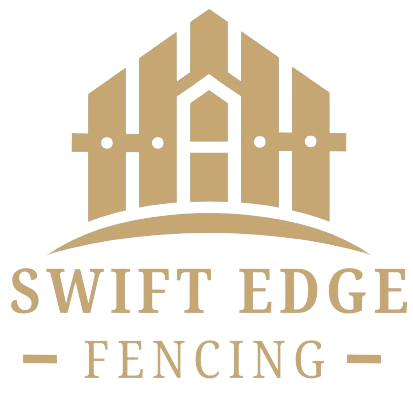
A Comprehensive Comparison: Wood vs. Vinyl Fences for Residential Properties

Posted in February, 2024
In the bustling neighborhoods of Nashville, TN, where homeowners seek both beauty and functionality in their residential fencing, I, as a seasoned fencing contractor, often find myself guiding clients through the decision-making process between wood and vinyl fences. Each option offers its own set of advantages and considerations, making it essential for homeowners to weigh their priorities carefully. Throughout this detailed blog post, I will delve into the nuanced differences between wood and vinyl fences, providing insights into cost, durability, maintenance, aesthetics, and environmental impact. By the end, you'll be equipped with the knowledge needed to choose the perfect fencing material for your residential property.
Cost Comparison
When it comes to cost, wood and vinyl fences present homeowners with distinct financial considerations. Wood fences typically have a lower upfront cost compared to vinyl, making them an appealing option for budget-conscious individuals. However, it's essential to consider the long-term expenses associated with maintenance and repairs. Over time, wood fences may require frequent staining, painting, and replacement of damaged boards, resulting in additional costs. In contrast, while vinyl fences may have a higher initial investment, they offer significant long-term savings due to their minimal maintenance requirements and durable construction. As a fencing contractor, I can provide transparent cost estimates for both options, helping you make an informed decision based on your budget and priorities.
Durability and Lifespan
Durability is a critical factor to consider when evaluating fencing materials for residential properties. Wood fences, while charming and traditional, are susceptible to rot, decay, and insect damage, particularly in humid climates like Nashville. Despite regular maintenance efforts, such as sealing and treating the wood, these fences may eventually succumb to the elements and require replacement. In contrast, vinyl fences boast exceptional durability and resistance to moisture, rot, and pests. With their solid construction and UV-resistant properties, vinyl fences can withstand harsh weather conditions and retain their structural integrity for decades. By investing in a vinyl fence, homeowners can enjoy peace of mind knowing that their property is protected by a long-lasting and low-maintenance fencing solution.
Maintenance Requirements
Maintenance plays a significant role in the longevity and appearance of residential fences. Wood fences demand ongoing care and attention to preserve their aesthetic appeal and structural integrity. This includes regular inspections for rot or decay, as well as periodic painting or staining to protect the wood from moisture and UV damage. Additionally, wood fences may require repairs or replacements of damaged boards over time. In contrast, vinyl fences require minimal maintenance beyond occasional cleaning with soap and water. With their smooth surfaces and non-porous materials, vinyl fences resist dirt, mold, and stains, ensuring that they retain their like-new appearance with minimal effort. By opting for a vinyl fence, homeowners can enjoy more leisure time and less stress associated with fence maintenance tasks.
Aesthetics and Design Options
The aesthetic impact of a residential fence cannot be overstated, as it plays a significant role in enhancing the curb appeal and overall ambiance of a property. Wood fences are revered for their natural beauty, warmth, and versatility, offering homeowners a wide range of design options to complement their architectural style and landscaping preferences. Whether it's a classic picket fence, a rustic split rail fence, or an elegant lattice fence, wood provides timeless charm and character to any residential setting. On the other hand, vinyl fences offer a sleek and modern aesthetic that appeals to contemporary homeowners. With their clean lines, uniform appearance, and diverse color options, vinyl fences can effortlessly elevate the visual appeal of a property while providing privacy and security. By considering your desired aesthetic and design goals, I can help you choose the perfect fencing material that aligns with your vision and enhances the beauty of your residential property.
Environmental Considerations
For environmentally conscious homeowners, the environmental impact of fencing materials is a crucial consideration. Wood fences are made from renewable resources, making them a more sustainable option compared to vinyl, which is derived from synthetic materials. However, the production process for wood fences may involve deforestation and chemical treatments, raising environmental concerns. In contrast, while vinyl fences are not biodegradable, they are often recyclable and can be repurposed at the end of their lifespan, reducing waste and promoting sustainability. As a fencing contractor committed to environmental responsibility, I can help you explore eco-friendly fencing options and choose the most sustainable solution for your residential property.
Conclusion
In conclusion, the choice between wood and vinyl fences for your residential property is ultimately a personal decision that depends on your priorities, preferences, and budget. While wood fences offer traditional charm and affordability, vinyl fences provide unmatched durability, low maintenance, and long-term savings. As a trusted fencing contractor in Nashville, TN, I am dedicated to helping you make the best decision for your home. If you have any questions or would like to discuss your fencing options further, please don't hesitate to reach out to me at (615) 555-0107 or via email at [email protected]. Let's work together to find the perfect fencing solution that meets your needs and enhances the beauty and functionality of your residential property.
Let's Talk About Your Garden
Have a question or need some help with your outdoor space? We'd love to hear from you! Our experienced gardeners are here to provide you with exceptional customer service and personalized solutions to meet your unique needs. Simply fill out the contact form below, and we'll get back to you as soon as possible.
Contact
Phone Number
(615) 555-0107